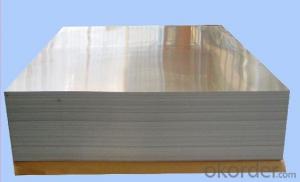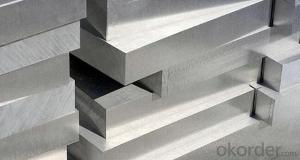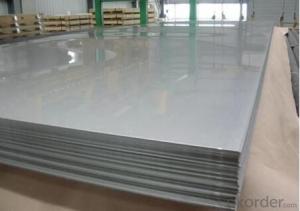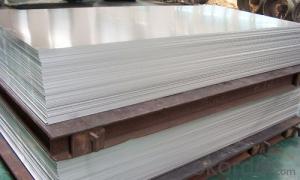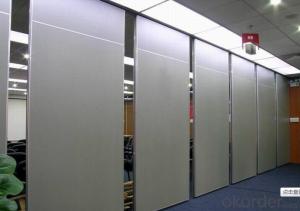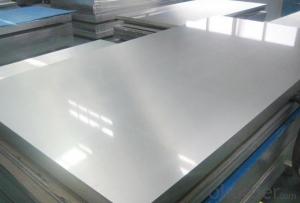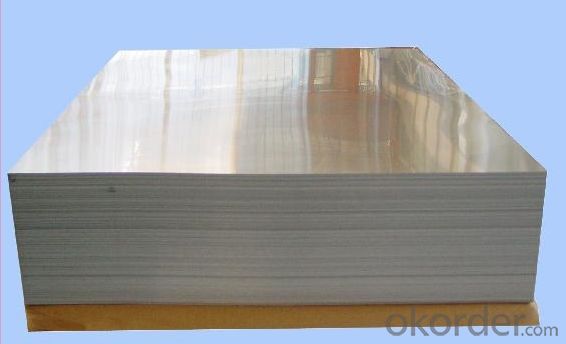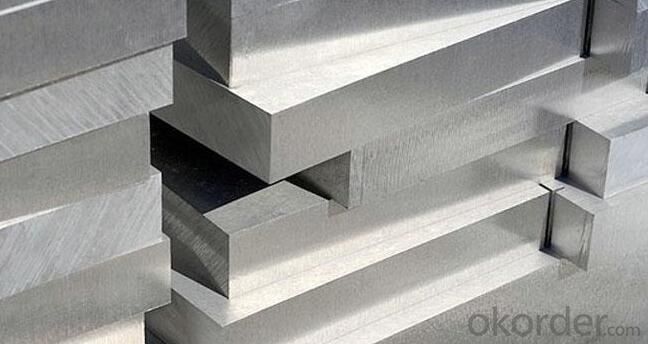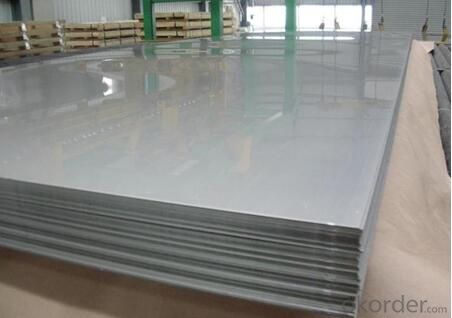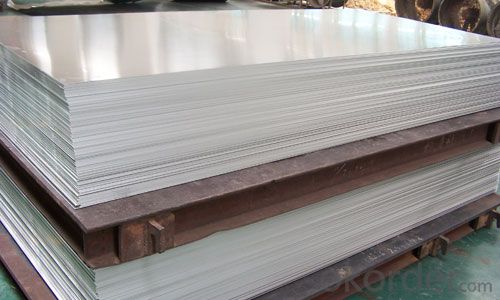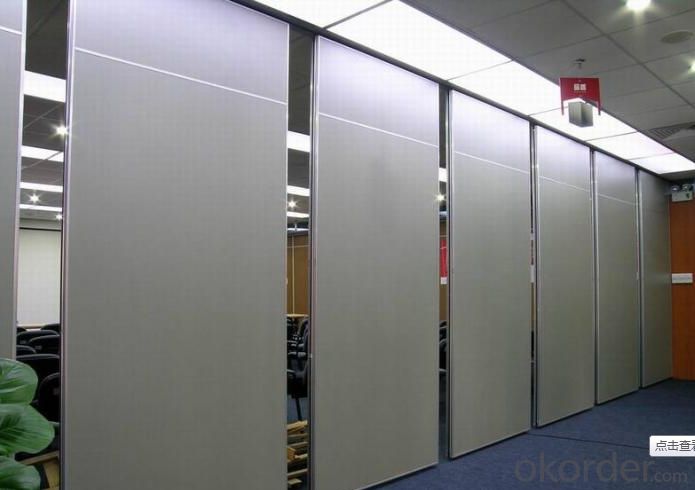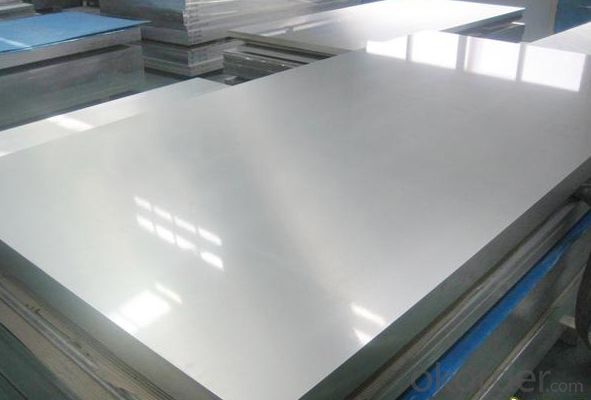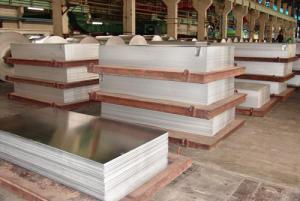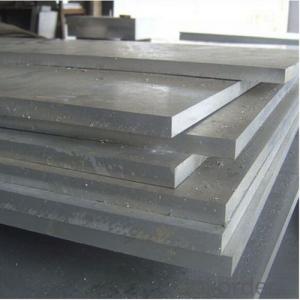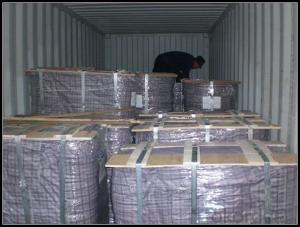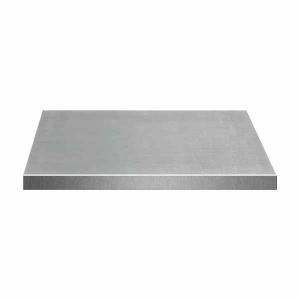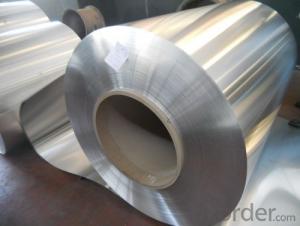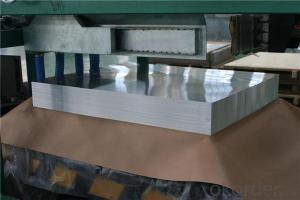Aluminum Expanded Metal Sheets - Alloy 6061 T6 Mill Finish DC Aluminum Sheet Plate for Mold Making China Supplier
- Loading Port:
- Shanghai
- Payment Terms:
- TT OR LC
- Min Order Qty:
- 8 m.t.
- Supply Capability:
- 20000 m.t./month
OKorder Service Pledge
OKorder Financial Service
You Might Also Like
Specification
1.General Information
Aluminum sheets is between 0.1 mm and 500mm in thickness and has a wide variety of uses in the construction industry including aluminium siding and roofing. Sheet is also used widely in construction, decoration, transport applications and other various industrial filed, such as automobile body panels, airframes, curtain walls and the hulls of boats etc.
We produces aluminum sheets which meets the highest standards in its own mill while save the cost. Our strong quality control term bring you the most-qualified products. Our aluminum complying with YS/T 429-2000(Chinese Industry Standard),GB/T 3880,EN485,ASTM B209.
The main producing procedure includes the following steps:
Rolling--Annealing--Slitting--Sawing, Cut-To-Length, Shearing
2. Technical Data
Aluminum Sheets 5xxx Hot Rolled is cut from aluminum coils 5xxx. Aluminum Sheets 5xxx Hot Rolled has great ductility, heat conductivity, anti-corrosion and moisture resistance properties.
Aluminum Sheets 5xxx Hot Rolled is widely used for electronics, instruments, lighting decoration, packing industry, house decoration, curtain wall, honeycomb-core panel, sandwich panel, aluminum composite panel and aluminum composite pipes.
3.Main Features of Aluminum Sheets 5xxx Hot Rolled
Superior quality of raw material
Reasonable and stable chemical composition
Accurate tolerance
Goode mechanical property
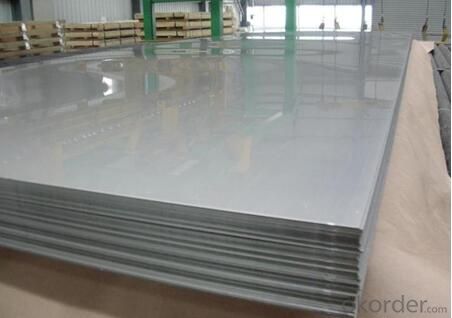
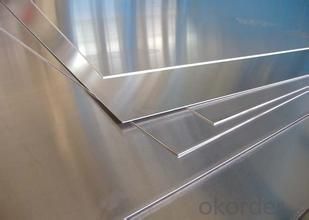
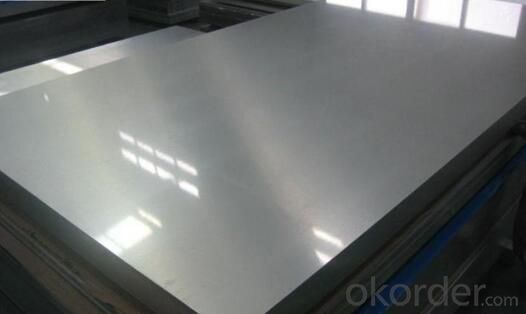
- Q: This question asks for a comparison between aluminum sheets and other roofing materials in terms of their characteristics and performance.
- <p>Aluminum sheets are lightweight and highly durable, offering excellent resistance to corrosion and weathering. They are energy-efficient, reflecting heat and reducing cooling costs. Compared to materials like asphalt shingles, aluminum is more expensive but lasts longer, with a lifespan of 40-50 years. Unlike clay or concrete tiles, aluminum is less prone to breakage and is easier to install. It also doesn't rot or warp like wood, and it's fire-resistant. However, it can be noisy during rain and is less visually appealing than some other materials, but its modern and sleek appearance can be a design advantage.</p>
- Q: Can aluminum plates be welded with stainless steel or iron nuts?
- In theory, yes, such as brazing.In fact, few people do that:Aluminum and steel systems do not form stable alloy remelting. Brazing is actually the use of third materials to link two original or dissimilar materials together. Unlike bonding, a stable alloy phase can be formed.
- Q: Describe the steps involved in installing aluminum sheets on a roof.
- <p>Installing aluminum sheets on a roof involves several key steps: 1) Inspect the roof structure to ensure it can support the new material. 2) Remove any existing roofing material. 3) Install roof underlayment to protect against moisture. 4) Position the first aluminum sheet at the lowest point of the roof, aligning it with the eaves. 5) Secure the sheet using clips or screws, ensuring a watertight seal. 6) Continue installing sheets up the roof, overlapping each by at least 2 inches for a secure fit. 7) Cut and fit sheets around vents, pipes, and other roof protrusions. 8) Install flashing and trim to finish edges and seal the roof. 9) Check for proper alignment and secure all fasteners. 10) Clean up debris and inspect the installation for any gaps or leaks.</p>
- Q: Are aluminum sheets suitable for automotive applications?
- Yes, aluminum sheets are suitable for automotive applications. They are lightweight, corrosion-resistant, and offer excellent strength-to-weight ratio, making them ideal for various components in vehicles such as body panels, hoods, doors, and engine parts.
- Q: Is aluminum sheet resistant to UV rays?
- Yes, aluminum sheet is resistant to UV rays.
- Q: as for heating coil and aluminum sheet, which one is better for heating?
- Both of them have advantage. It depends on the new product type it’s applied. Heating coil: it’s applied in some products with high temperature and large heat release, such as oven and other types.
- Q: is there aluminum oxide on the surface of aluminum sheet after being polished by abrasive paper?
- aluminum will be oxided as aluminum oxide once being exposed in air.
- Q: I would like to make a boat, Songhua River used to know, tell the answer, good + points!
- Marine yacht with 5083, with 5456 of inland water on it, domestic Park boat 5052 will be used
- Q: What are the weight-saving benefits of using aluminum sheets in different applications?
- Using aluminum sheets in different applications offers several weight-saving benefits. Firstly, aluminum is a lightweight material, making it ideal for applications where weight reduction is crucial, such as in transportation industries (e.g., automotive, aerospace). Secondly, its high strength-to-weight ratio allows for the production of structurally sound components without compromising on weight. This weight reduction translates into improved fuel efficiency, increased payload capacity, and enhanced overall performance. Additionally, aluminum sheets are corrosion-resistant, ensuring durability and longevity. Overall, the use of aluminum sheets in various applications provides significant weight savings, leading to improved efficiency and performance.
- Q: How do aluminum sheets handle extreme temperatures?
- The exceptional ability of aluminum sheets to handle extreme temperatures is widely recognized. This is primarily due to their high thermal conductivity, which enables them to effectively dissipate heat. As a result, they are suitable for applications involving high temperatures. Aluminum, with a melting point of 660 degrees Celsius (1220 degrees Fahrenheit), can withstand a wide range of extreme temperatures without compromising its structural integrity. When exposed to intense heat, aluminum sheets do not easily deform or warp. Consequently, they are ideal for use in environments with high temperatures, such as industrial furnaces, automotive engines, and aerospace applications. Furthermore, aluminum has a low coefficient of thermal expansion, meaning it expands and contracts minimally when subjected to temperature variations. This significantly reduces the risk of cracking or structural damage. On the contrary, aluminum also performs exceptionally well in extremely cold temperatures. It remains durable and retains its strength even in freezing conditions. This makes aluminum sheets suitable for cryogenic applications, including the construction of liquid natural gas tanks or aerospace components that operate in low-temperature environments. In conclusion, aluminum sheets excel in handling extreme temperatures due to their high thermal conductivity, low coefficient of thermal expansion, and excellent structural integrity. Whether subjected to intense heat or extreme cold, aluminum sheets remain stable and reliable, making them the preferred choice in various industries.
Send your message to us
Aluminum Expanded Metal Sheets - Alloy 6061 T6 Mill Finish DC Aluminum Sheet Plate for Mold Making China Supplier
- Loading Port:
- Shanghai
- Payment Terms:
- TT OR LC
- Min Order Qty:
- 8 m.t.
- Supply Capability:
- 20000 m.t./month
OKorder Service Pledge
OKorder Financial Service
Similar products
Hot products
Hot Searches
Related keywords
